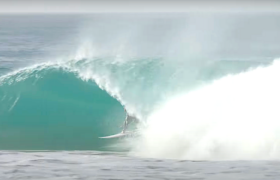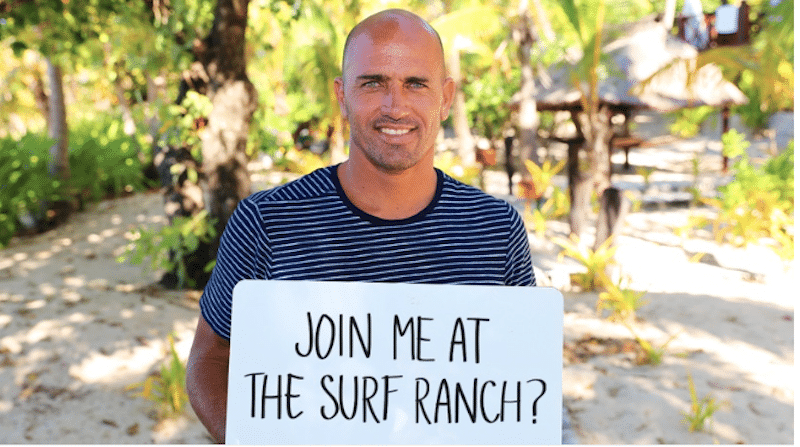Pulitzer Prize-winning surf memoir reveals surfers as anti-egalitarian, territorialist, and exclusionary.
Do you remember the surf memoir called Barbarian Days: A Surfing Life by the New Yorker’s Bill Finnegan?
Three years ago, it won the Pulitzer Prize for biography. The prize committee praised it as, “A finely crafted memoir of a youthful obsession that has propelled the author through a distinguished writing career.”
The Pulitzer Prize, of course, is America’s most prestigious award in journalism. It also includes ten thousand dollars in prize money to each category winner.
The Wall Street Journal called it “gorgeously written and intensely felt… dare I say that we all need Mr Finnegan… as a role model for a life, thrillingly, lived.”
The LA Times said, “It’s also about a writer’s life and, even more generally, a quester’s life, more carefully observed and precisely rendered than any I’ve read in a long time.”
It threw me under the bus of a two-day obsessive read. I’d dived into Finnegan’s work in the New Yorker before, including an excerpt from the book about his time as a kid in Hawaii (read here) and figured the memoir would be gently entertaining but not especially adventurous. I imagined a writer with a loosely knotted bow-tie and a drooping moustache. A delicate New York gentleman, a flabby enthusiast.
I’d only penetrated three chapters into the book when we suddenly camping on Maui waiting for Honolua Bay to break and, shortly after, camping on the empty beach at Tavarua for a week and surfing a new discovery called Restaurants.
Soon, Grajagan in 1979, Africa and, later, among the big-wave surfers of Ocean Beach, San Francisco, and, then, spending long vacations on Madeira, waiting for Jardim Do Mar’s heavy deep-water right to break.
And so on.
Two days ago, the alt-right website Takimag.com published a review of BBD that hits on immigration, overpopulation and surfers’ barely concealed fascism.
Let me squeeze out a little of the juice.
While reading Finnegan’s account of his quintessential boomer life of freedom, security, and opportunity enjoying himself in some of the most desirable real estate in the world, I kept asking from my 2018 perspective: How could he afford that?
Surfing may be even more addictive than its counterparts, such as skiing, mountain climbing, and golf. While the waves are free (which, I learned from Barbarian Days, causes surfers no end of grief), the real estate values of adjoining coastal property have only gone up and up over Finnegan’s lifetime. The roll call of places where Finnegan surfed as a boy and young man—Malibu, Newport Beach, Topanga Canyon, Santa Barbara, Honolulu, Santa Cruz, Maui, Australia’s Gold Coast, Cape Town, and San Francisco—reads like a real estate speculator’s fever dream.
Before overpopulation, women’s lib, and immigration, America, especially California, had needed its young men, and would therefore put up with a lot from them. Finnegan recounts his occasional worries that his obsession with surfing might be interfering with finishing his degree at a free University of California campus and starting a white-collar career, but decent-paying blue-collar jobs were no problem for a strong young man to find back then.
Finnegan is an old-fashioned macho leftist. But he seems unenthused by contemporary anti-straight-white-male identity politics and allows his conservative surfer buddies a number of the best lines in the book, such as his Valley Dude friend who tells him, “You know what your problem is? You don’t like your own kind.”
Interestingly, there are no serious women surfers in Finnegan’s memoir at all. And every single one of his surf buddies has been straight, even his New York City surf pal, John Selya, who is a professional Broadway dancer. While some of Finnegan’s Honolulu surf buddies were Native Hawaiian or Japanese, the only African-American who appears in the book is Punahou Prep’s nonsurfing Barack Obama, who is amazed to hear in 2004 that Finnegan’s parents had sent him to a notoriously haole-hostile public school.
Although Finnegan devotes a few paragraphs to how surfers were, vaguely, part of 1960s leftism, the reality is that surfing is, by its nature, anti-egalitarian, territorialist, and exclusionary. The immigration issue never comes up in Barbarian Days, but it’s clear that the best surfers’ instincts toward what they care about most, waves, are fiercely restrictionist. Surfers tend to be localists, who are like nationalist nativists, only more tribal.






